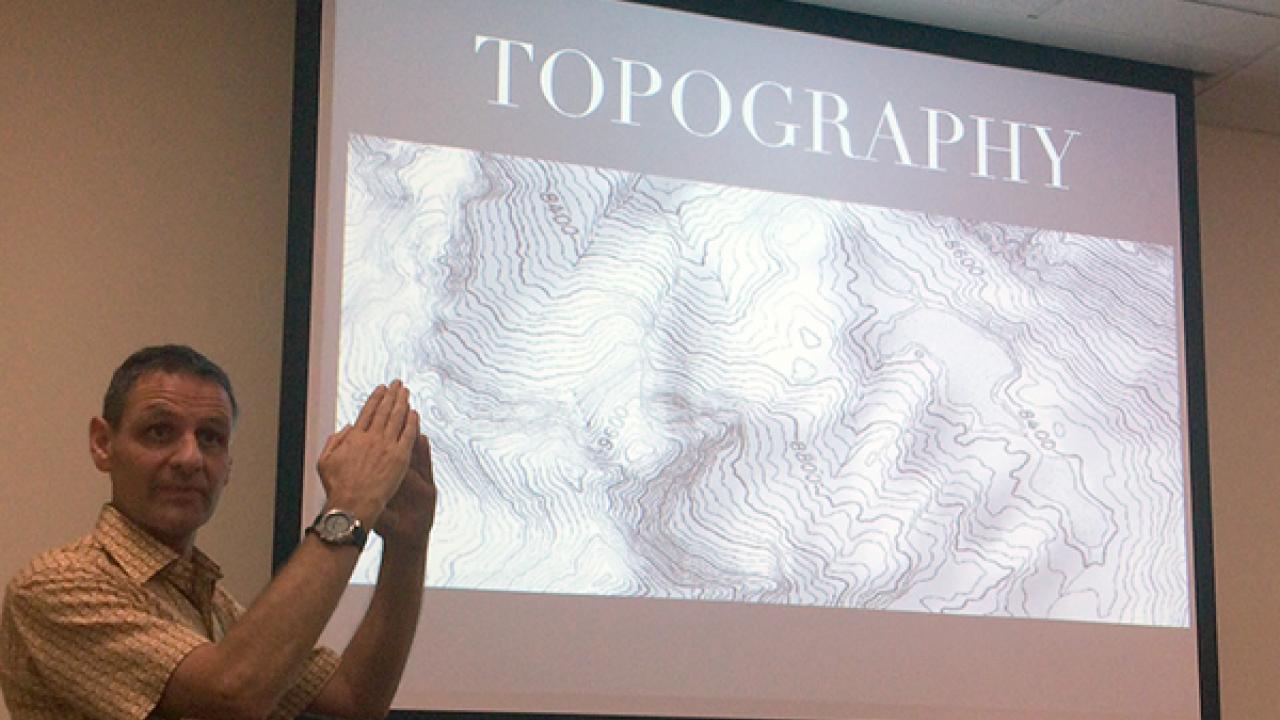
Tea Expert Talks about Environment-Taste Connection
Terroir, that “sense of place” so important to making great wines, matters in tea too.
Kevin Gascoyne, a tea taster and co-author of the book Tea: History, Terroir, Varieties, gave an overview Nov. 4 on how soil, topography, climate and other environmental factors influence the characteristics of non-herbal teas.
“It’s something we noticed as we developed as tasters,” said Gascoyne, one of four owners of Camellia Sinensis Tea House in Montréal. “We spent more and more time in the gardens, so we noticed this connection between the growing environment and what’s happening to the plants.”
The 90-minute “Tea and Terroir” talk in the Memorial Union’s Garrison Room was sponsored by the UC Davis Global Tea Initiative for the Study of Tea Culture and Science.
British-born Gascoyne, who specializes in buying Darjeeling and other teas of India for the company’s 250-tea catalog, said he identifies 15 to 16 tea farms to visit each spring.
“I’ve got my plan. I’ve decided on which gardens through listening to the gossip, through my own experience, through tasting at all the different gardens in the region.”
But he discovered that teas from the same garden can vary year to year, season to season and even one day to the next — “because of where they are on the hillside, because of what the weather was like that day, because of how those plants are doing, because of other plants around them.”
In other industry trends, Gascoyne said, tea producers are moving more and more to organic farming methods, in part because of intensive testing for residues of chemical fertilizers and pesticides. “It’s putting a lot of stress on the growers not to use chemicals anymore.”
He said climate change is hurting tea growers — bringing large droughts, flash floods and other extreme weather as well as the migration of insect pests to higher elevations.
“The last 20 years, the whole thing has gone nuts,” he said. “In the tea industry, nobody questions the concept of climate change at all.”
He ended his talk with a call for increasing pay to tea growers to help them survive years of bad harvest. “We have to start paying more for tea, because it’s really out of scale.”
— Kathleen Holder, content strategist in the UC Davis College of Letters and Science
